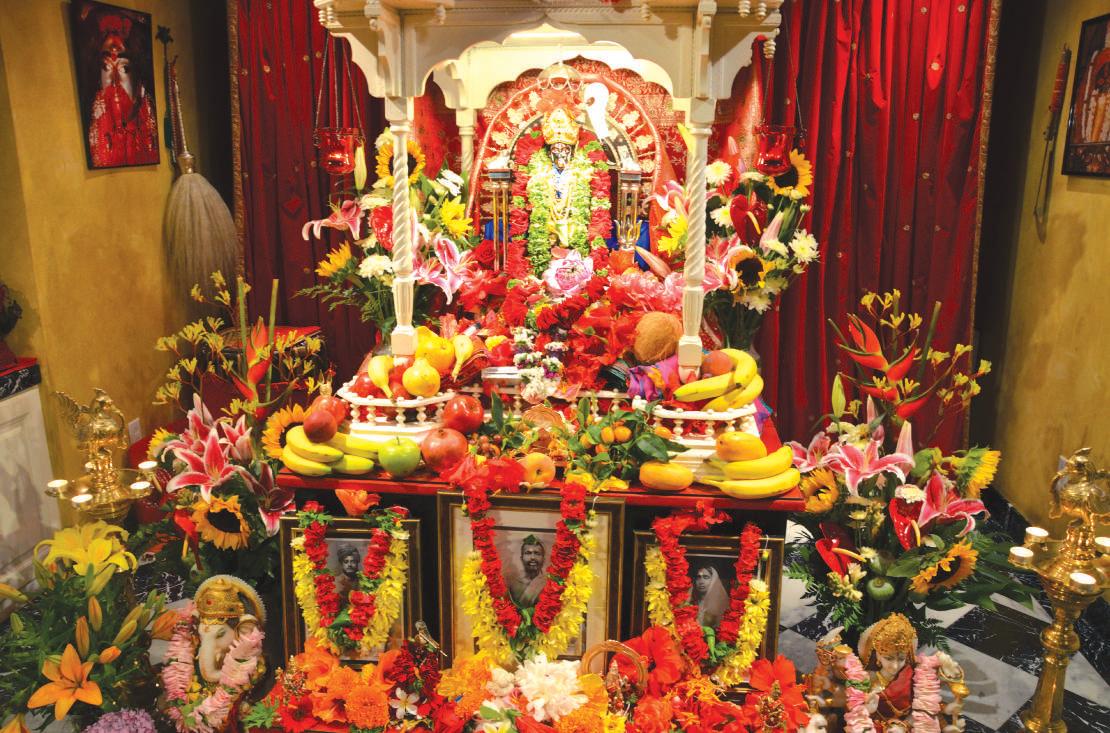
4 minute read
Pariprasna
Kali Mandir, Laguna Beach, California, U.S.A.
Srimat Swami Tapasyananda Ji (1904 – 1991), was one of the Vice-Presidents of the Ramakrishna Order. His deeply convincing answers to devotees’ questions raised in spiritual retreats and in personal letters have been published in book form as Spiritual Quest: Questions & Answers. Pariprasna is a selection from this book.
Advertisement
QUESTION: What is the place of Bhakti in modern society?
MAHARAJ: Faith in God and devotion to Him are important needs of man in all societies and at all times. Forces favourable to it and forces antagonistic to it have also existed everywhere and at all times. Anti-devotional forces are not a speciality of our times as some people believe. There is however an element of truth in this assumption. Intellectual sophistication has a tendency to make some men sceptical. But more than intellect, it is man’s intense attraction for the life of the senses that misdirects the intellect into sceptical channels. Otherwise the intellect is neutral in regard to faith in God. It may question and demolish many of the crude and superstitious ideas and practices that have developed in the name of faith and that type of cobweb-cleaning is a very necessary process. The intellect is aware of its own blindness about the ultimate nature of things. This position is confirmed by modern philosophers of science too. To the extent that devotional life is eliminated from the life of men, they will find themselves meaningless creatures in this mighty cosmos, and their daily life too will lose all moral significance.
A human society without any sanction for moral code is worse than animal society. For, as far as animals are concerned, they have in-built irrevocable checks to regulate their instinctive life, whereas man’s regulative forces are largely voluntary and under the control of his thought-life. Unless some ultimate meaning is given to life, man’s thought becomes weak and chaotic and his life is reduced to the condition of a rudderless boat. So faith in God and a devotional ideal are quite necessary even for man’s happiness in life and they are more necessary today than at any former period in human history; for without them man will become increasingly corrupt and unhappy.
QUESTION: Who is a true devotee?
MAHARAJ: Many descriptions of a true devotee are given in the scriptures. Striking descriptions are given in the Bhagavata , especially in 3.25.21-24. The Gita gives its own description of a Bhakta in chapter 12. Sri Ramakrishna’s teachings seem to imply that he considers a Bhakta to be a person who looks upon God alone as his ‘own’ and is interested in other things only to the extent they serve the devotional purpose.
The Bhakti texts speak of two types of Bhakti and Bhaktas. There is Vaidhi-bhakti or preparatory devotion and one who takes to this is also called a Bhakta. But really he is only a Bhakta in the making, if we take the term Bhakta in the highest sense pointed out above. Preparatory devotion is the sentiment of devotion generated in the mind by external stimulations from disciplines, environment and contact. It manifests under proper conditions, but often disappears when the external environment changes.
The Bhagavata Purana classifies these conditions or disciplines into nine categories: Sravanam (hearing about God from devotees), Kirtanam (reciting songs and praises about Him and His excellences), Smaranam (remembering Him by taking His name), Padasevanam (service of Him as manifested in all beings), Archanam (worshipping Him in images and holy places), Vandanam (showing proper respect and honours to all holy images, persons, places etc), Dasyam (feeling that one is His devoted servant), Sakhyam (feeling that He is beneficently responsive to one like an intimate friend and relative), and Atmanivedanam (surrendering oneself to Him). These have been elaborated into sixtythree disciplines by later teachers. Of these, the earlier items of discipline depend mainly on external aids and stimulations. But as we come to the last three in the list, we find these are purely internal. They are attitudes of mind. They signify that real Bhakti is an inbuilt and constant attitude of mind transcending all external conditions. Such a form of superior devotion is called Para-bhakti. There is the following beautiful description of it in the Bhagavata Purana:
When all the powers of man’s mind and senses, which are usually engaged with external objects, get naturally focussed on God exclusively, without any extraneous and self-centred motivation, and with a firmness which no obstruction can overpower, such a mode of mind is called Bhakti, devotion to the Lord in the highest sense. Such devotion is superior even to Mukti; It burns up the covering of ignorance in a person just as fire burns up objects put into it. (3:23.32-33)
Devotion of this order is very rare, but it alone is the consummation of devotional life. Long and arduous practice of Vaidhi-bhakti, probably for several lives, generates this mode of mind in man. According to some authorities only the grace of God can generate it.








